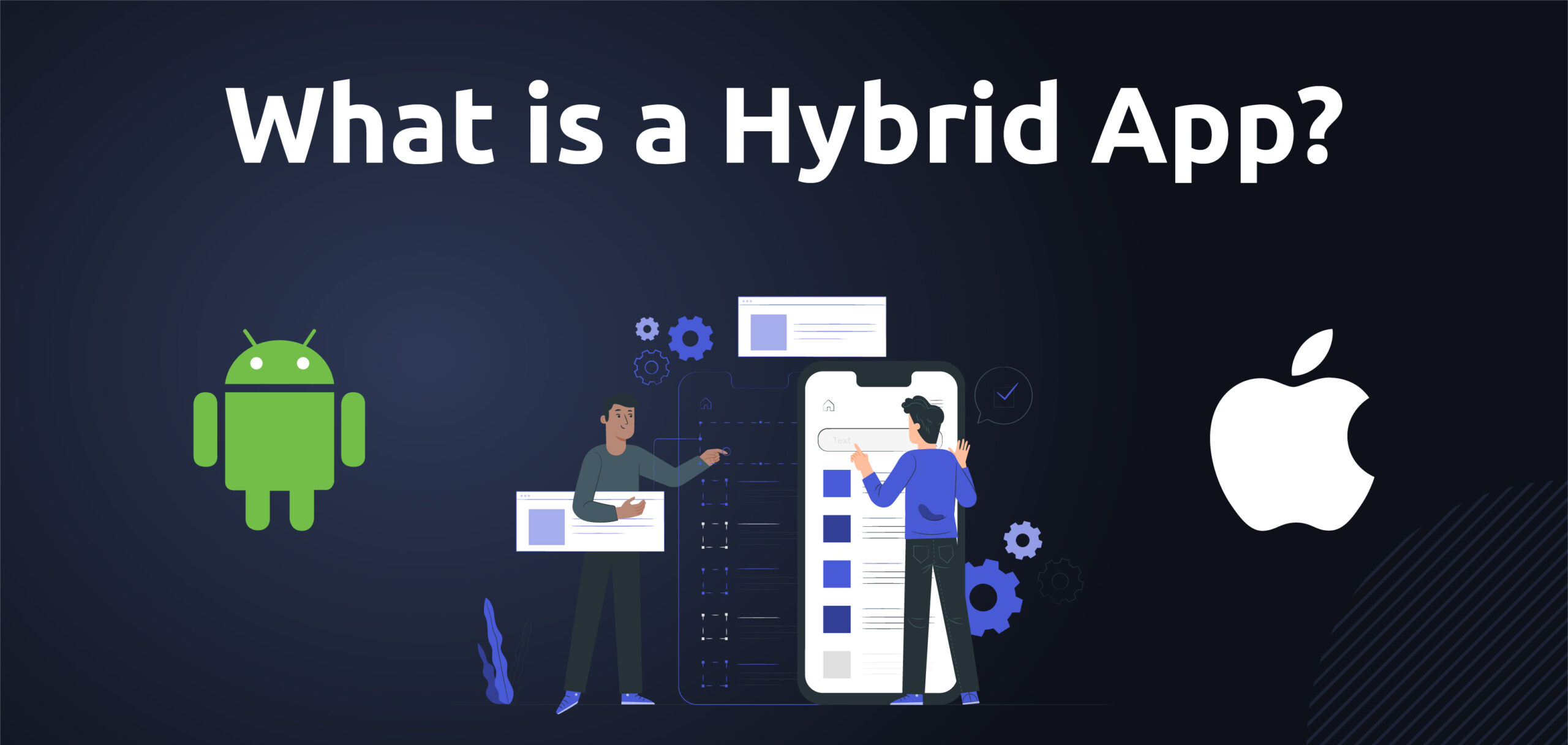Benefits Of Hybrid Mobile App Development And Why Businesses Should Consider It
Hybrid app development is gaining popularity all over the world, especially among startups and SMEs. So, what are the benefits of hybrid mobile app development and why should more businesses consider it? Let’s find out in this article.
The technology of hybrid apps (hybrid application) with its significant advantages are making all the organizations either to develop a hybrid app or shift their native app to the cross-platform mobile application. Also, the app development process is completely overhauled by hybrid apps.
What is a Hybrid App?

A hybrid app is a mix of both native and web applications. Primarily, a native app is designed for a specific platform and installed on a computing device, while the web app is crafted for multiple platforms and is published over the Internet through a browser. And if we talk about the hybrid mobile apps, it’s the blend of both and usually explained in the context of mobile computing.
Hybrid Mobile Application Development Features
A hybrid app is a mix of both native and web applications. Primarily, a native app is designed for a specific platform and installed on a computing device, while the web app is crafted for multiple platforms and is published over the Internet through a browser. And if we talk about the hybrid mobile apps, it’s the blend of both and usually explained in the context of mobile computing.
Why Hybrid?

The main reason many companies are turning to hybrid mobile app development is the ability to incorporate native capabilities into the app, including the use of the user’s camera or address book. An app that is strictly web based cannot access these features, putting restrictions on Mobile App Development.
Updates are also made easier with hybrid apps. There is no longer the need to go to the app store and go through all the necessary steps to obtain the update. This enables businesses to push the update through, especially when it is something important, such as a security issue, without forcing customers to go through the app store.
Advantages Of Hybrid Mobile App Development

1. Better User Interface
You must have noticed the change in the website appearance and functionalities when juggling between different browsers or systems, and the same applies to the apps. But if an app is developed on a hybrid platform, the hybrid app UI remains responsive and offers consistent user experience across multiple mobile platforms.
2. Effortlessness Integrations
Similar to native apps, hybrid applications drive the device’s inner programming solution by an overlay which assists to deliver better synchronization with other well-suited apps. This decreases the integration problems for developers.
Again going around, the hybrid application works smoothly with the device’s native apps covering camera, messaging and GPS to make sure a better user experience.
3. Fewer App Store Limitations
Not only does hybrid application development takes less time, but hybrid apps also take less time to be deployed. App stores like Apple’s or Google’s require a considerable amount of time for validation once a new app or an update is submitted. With a hybrid app, developers can avoid this delay, especially if they require updating their app frequently as it is not necessary to resubmit the new version of the app if the native code has not been modified in the update. This means they can quickly roll out new updates without waiting out the validation period.
4. Excellent Loading Speed

As hybrid apps are lightweight, it doesn’t take much time to load the high-definition graphics and content. Thus, hybrid app load content much faster than the web and native apps. Even in case of a refresh or reload, the hybrid app doesn’t face any issue and also works perfectly fine in a slow internet connection.
5. Resources Availability
The availability of resources is one of the top issues that the developers face now and then on a regular basis. But with the hybrid mobile app development, all the resources are readily available for the web technology, and this saves the organization from shelling out a massive sum in developing an application as hybrid applications are cheaper than native apps.
6. Platform Availability
Currently, there are two major platforms on which apps are being published; one is the Google Play Store for Android, and the other one is the Apple App Store for iOS. So, a hybrid app can be rolled on multiple platforms with the same effort, money, and time as it takes to develop a native app.
Also, it helps in targeting a wide range of users and gets the maximum outreach as the user are divided among different platform based smartphones.
7. Offline Support For Apps
Internet connectivity issues are faced on a daily by a large population all over the world, especially people living in rural areas, or people with limited internet plans or poor connections. Therefore, offline support is an important element of modern-day mobile applications and it is one of the essential benefits of hybrid app development. Offline support offered by hybrid apps is particularly important for businesses that want to cater to a wide range of consumers.
Offline support helps users access some features of the application even when they lose connection, and also allows users to store data locally using the device’s API, which improves the usability and accessibility of hybrid apps for its users.
Final Thoughts
The hybrid application development offers the best of both worlds. It delivers high-speed performance and consistent UI/UX and saves time, cost, and efforts of the development team. If you are a small-scale startup with a limited development budget or you want to develop and release your mobile application in a short amount of time, then hybrid app development is the right approach for you. Or if you are a company, like Facebook and Netflix, that is dominant in the existing web market and has a sizeable amount of content and user base, then going the route of hybrid app development is also the smartest choice.
